Under a rain that does not stop and soaks to the bone, some emaciated dogs wander between hunger and desperation that can be felt in front of the facade of the Trojes Migration Institute, in the municipality of the Department of El Paraíso.
In this Honduran town on the border with Nicaragua, the statistics of the migratory crisis that the Central American territories are going through are outlined in the tiredness of the emaciated faces, they rise up in testimonies that try to explain the reasons that dragged them here.
Joel Yamil's story contains all that exhaustion.
“He had been living in Uruguay for two years, he worked in a slaughterhouse, but it wasn't enough... Salaries there are very low and food is very expensive.
It is a wonderful country, very beautiful people there!, but the economy is very bad.
So I decided to leave,” says this 55-year-old Cuban.
“During the journey we only experienced hardships.
They extorted money and beat us, they put a shotgun to my head and they even tore up my passport, just out of spite.
The treatment we receive for wanting to work is inhumane,” says Yamil, a recent arrival in Honduras, a country that only in the middle of 2022 more than 54,000 irregular migrants entered.
“The flow of people began to triple in March and in the last month the data is skyrocketing.
More and more are arriving, and in worse conditions.”
Faced with the growing influx, the municipal governments of the region decreed a humanitarian emergency months ago, a declaration that highlighted the lack of logistics and resources of the mayors' offices to attend to the high percentage of people in conditions of extreme vulnerability that they were receiving.
15% of the population that crosses the border irregularly are already minors, reveal data from the National Migration Institute (INM) of Honduras.
"The number of mothers with small children and entire families has increased significantly," says Karen Alemán, health and nutrition coordinator for Action Against Hunger, one of the first NGOs to settle in the area as soon as the crisis broke out.
“It hurts so much, I can't stand up anymore.
But I have to continue.
She can't stop me now,” says Nadine, a Haitian who left her 16-year-old daughter in her country with her mother to get to the United States.
"I want to work and send money to my family," she relates as she wraps her arms around her five months of pregnancy.
She finds it harder and harder to move, to walk, and she still has a long journey ahead of her.
“We serve many pregnant women who arrive with swollen ankles and are in critical condition.
Some of them are because they were raped during the crossing,” highlights the Nicaraguan aid worker.
All around her very young children cling to their mothers' legs, mothers cling to their bulging bellies.
"The situation has worsened a lot, the mass arrival of people has caught us with our hands up, we cannot attend to so many, we do not have the capacity or resources," says Abraham Kafeti, the mayor of the town belonging to the National Party of Honduras (PNH), opponent of the Government headed by Xiomara Castro.
“There are 18 of us, counting the little ones.
We knew that traveling with children and with my mother, now an old woman, was risky.
But there in Venezuela everything is very bad, we lived in absolute poverty.
It got very dangerous there,” says Nelson Sánchez.
The group with which he travels, nine of them minors, has just arrived at the Pastoral Center of Trojes, the only place that is providing shelter to migrants in transit.
“At first men came alone, but lately they are families,” says Mario Ramos, the Salvadoran priest responsible for the congregation that has accommodated in one of the pavilions of his land a space for foreigners to rest after a hard journey.
“Our capacity is limited, the facilities can only accommodate around 100 people.
We give priority to families with children.
A woman checks on a migrant at the Jesus is alive shelter, in the town of El Paraíso, Honduras. Gonzalo Hohr
When the emergency broke out a few months ago and the religious order began, in the midst of the covid confinement, to give temporary asylum—mats in a large room with windows without glass or curtains—, the police showed up at the pastoral center.
“They told us that we could not receive anyone, even if there were very sick people on the street, wandering in the heavy rains.
Even so, the bishop gave the order that we had to help and we took the risk”, explains the religious, lamenting the absence of effective action by the authorities.
The Immigration Amnesty that saves migrants from paying a fine
“We no longer have anything left, we invested everything in the trip, there were many countries to cross.
All savings were lost, or stolen!
We feed on what good people give us.
How are we going to do it to continue?” asks Nelson Sánchez.
Until the month of August, "in Trojes it only served people who paid the fee to pass through," explains the Copeco worker.
To travel through Honduras, those entered irregularly had to pay a fine of almost 5,000 lempiras, about 230 dollars.
An increase of 40 dollars more than what they were paying until June due to the recent readjustment of the country's minimum wage, and that did not apply to those under 14 years of age.
"In Nicaragua, even babies have to pay the fine," says Haitian Sterencia Valvat with a four-month-old baby in her arms.
The administrative sanction, the highest in the region, and which allowed transit, exit or regularize their situation in a period of five days, was "a registration certificate, not a safe-conduct, which was useless to travel through Guatemala," recalls one of the three workers from the human rights area of the INM.
“We do not have technical resources and we cannot provide comprehensive care.
We have to manage to organize them, if it rains a lot we try to locate the weakest in the corridor”, details the agent.
Under pressure from international organizations and after its vote in May in Congress, this August the Government approved the Immigration Amnesty, the exception of the fine for those people in an irregular situation who entered Honduran territory before December 1 of 2022 and who have not regularized their immigration status.
Until the approval of this measure, to avoid the administrative sanction for those who could not pay it, the INM applied a vulnerability study, that is, an interview of 15 questions that analyzed their socioeconomic situation, the abuses suffered, the reasons why they left of your country, among others.
This questionnaire was not implemented in Trojes, but in Danlí,
positioned in July as the municipality in the country with the most blind spots for the irregular migratory transit of people who long to reach the United States through Mexico.
According to official data, in the first days of July, some 400 migrants were arriving in this town on a daily basis.
"Those are the ones who register, but we calculate that there are about 200 more who cross the border who do not," explains INM staff.
International organizations overwhelmed by the crisis
In Danlí, only a religious center coordinated by NGOs is providing support to the exhausted population that arrives with snake bites on their hands and sprained feet.
The Jesús Está Vivo shelter has become the only scene of empathy for migrants who arrive in the cross-border city.
Migrants line up at the Trojes Migration Institute in Honduras, on July 5, 2022.Gonzalo Höhr
Between bags of food, hygiene kits and makeshift clinics, health personnel serve the most vulnerable from early in the morning until late at night.
“Most of the children come with diarrhea, flu, pneumonia and many infections.
70% of them bring some disease.
In the evaluations that we are carrying out, high malnutrition rates do not appear, but the risks of falling into acute malnutrition associated with pathologies do, ”says the aid worker after weighing and measuring Roseleica, a 15-month-old baby whom her mother tries to distract while examining it in detail.
"The arm circumference has a low weight, 8.9 kg," the young woman points out in a table.
“We left Brazil three months ago and from there we crossed through Colombia, Panama, Costa Rica and Nicaragua.
The crossing was a horror, but the worst was the jungle”,
hell of a jungle
Every time a witness mentions the jungle, the voice breaks.
That word evokes the Darién Gap, the border crossing between Colombia and Panama that splits the Pan-American highway in two.
This impenetrable jungle area — Eden of biodiversity turned into a purgatory for human survival —, is imposed as an obligatory step to reach North America.
A hell of a journey after which there are, in the best of cases, stories about abandoned corpses on the roads and "men who wander aimlessly through the jungle, because they lost their sanity," Yamil details.
It was only a few days ago that he left the jungle behind and he assures that he would never make that trip again.
“The concern I have is that eight-month pregnant girl who was alone and we recommended that she join us.
But she did not pay attention to us, she continued through the jungle, all by herself with that belly, because she wanted to get there before her child was born, ”laments the Cuban.
The lack of logistics and resources of the municipalities puts migrants in conditions of vulnerability.Gonzalo Höhr
Venezuelans, at the head of the migratory figures
From the makeshift tent that Médecins Sans Frontières set up in front of the Danlí Migration Institute delegation, two parents walk out hand in hand with their children, one 8 years old and the girls 12 and 14. “They arrived yesterday and they just had a pregnancy test for each.
It happened to them in the jungle,” Rodríguez laments, staring at the family that is traveling along the highway on their way to the religious shelter where they will spend their first night in Honduras.
They are from Venezuela, the country whose nationality, in the first days of July, overtook the Cubans and Haitians in the caravans.
According to official INM reports, until June Cuban migration represented almost 70% of irregular income to the country.
Haiti and Ecuador are the most common provenances that follow.
Other less frequent ones are also increasing, such as Senegal and Angola.
“In the beginning there was more solidarity between people, they offered their hospitality.
Until the migrants began to be seen as a business,” explains Kenia Zerón, a human rights defender.
The activist, who has just assumed the position of councilor of councilor of Danlí, spread a video on her Facebook profile a week ago in which a policeman tried to extort money from a migrant.
“Very serious human rights violations are being committed on this border and it does not happen here.
Migration is not among the priorities on the political agenda, there is no interest”, reproaches Zerón, for whom amnesty is not a final solution “but it is the only short-term option to mitigate the emergency we are facing”.
“The central government is discharging the responsibility of migration in the municipalities and in the church.
But, since the problem began, they have been able to collect millions of lempiras.
And their response when we ask for help is they can't do anything.
Why don't they invest that amount of money that enters the coffers of the State in the migrants themselves?
There are no shelters, hospitals are overcrowded.
Where does that money that enters the irregular passage go? ”, Denounces the mayor of Danlí.
Given the lack of places of shelter and the torrential rains, Alice Shackelford, UN resident coordinator in the country, made a phone call to the local bishop asking them to allow them to continue housing people in the Jesus is Alive facilities until another solution is found. .
On June 29, she received a response letter.
"He told me that he was going to provide his center as a refuge for humanitarian work until December," she says.
“They see us as a business.
They take advantage of us and treat us inhumanely, worse than dogs!
If you don't have money you don't advance, you stay behind.
Also if you show yourself weak”, says Jamil, who after a long journey finally rests on a thin mattress in the religious shelter of Trojes.
Tonight he will gather strength to continue the path he traced on a map and cross Guatemala.
“And from there to Mexico.
Until I get there, I won't stop until I get there, even if it means going through hell."
Follow all the international information on
and
, or in
our weekly newsletter
.

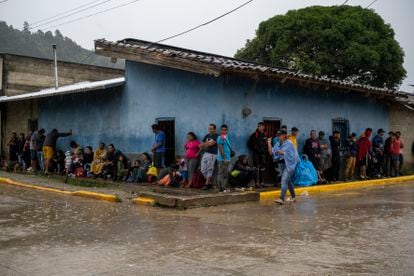
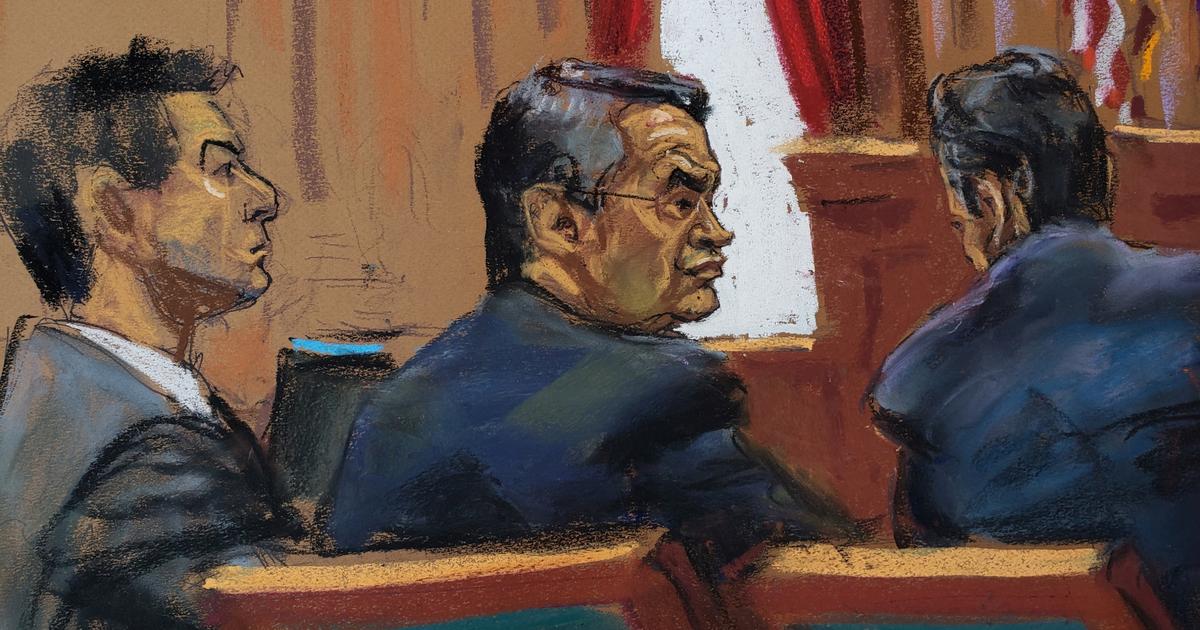

/cloudfront-eu-central-1.images.arcpublishing.com/prisa/GZBJJXO3EZE2HLSP5ZRRKYYYOY.JPG)
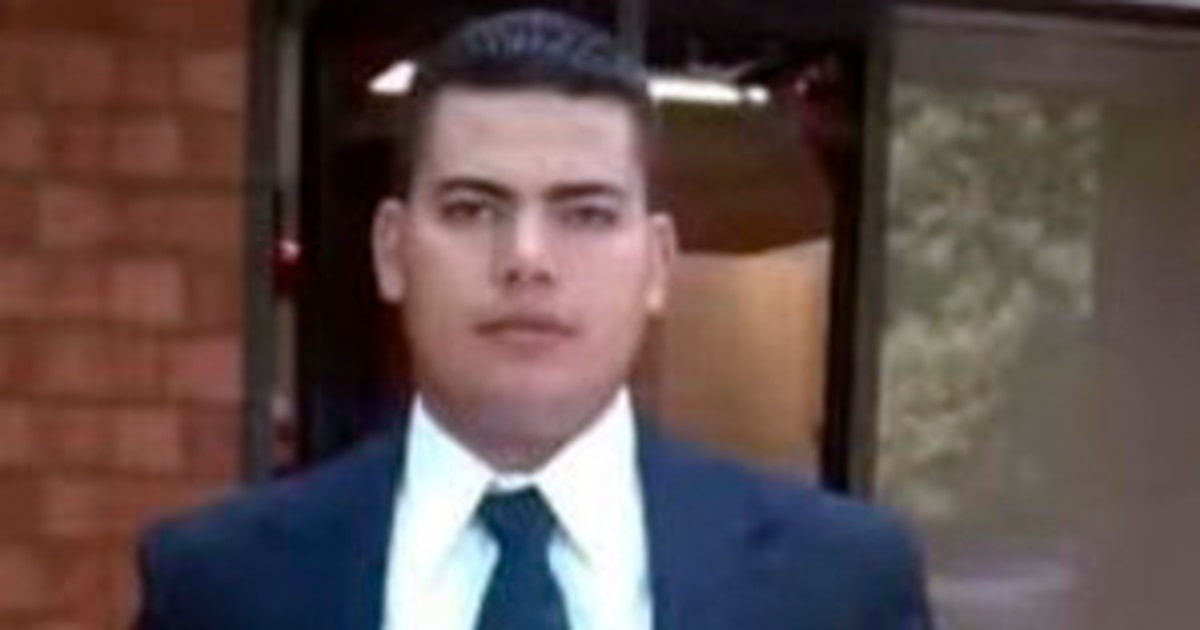
/cloudfront-eu-central-1.images.arcpublishing.com/prisa/AWQDFA55JRFZ7EFY4XGGS3VAVQ.jpeg)
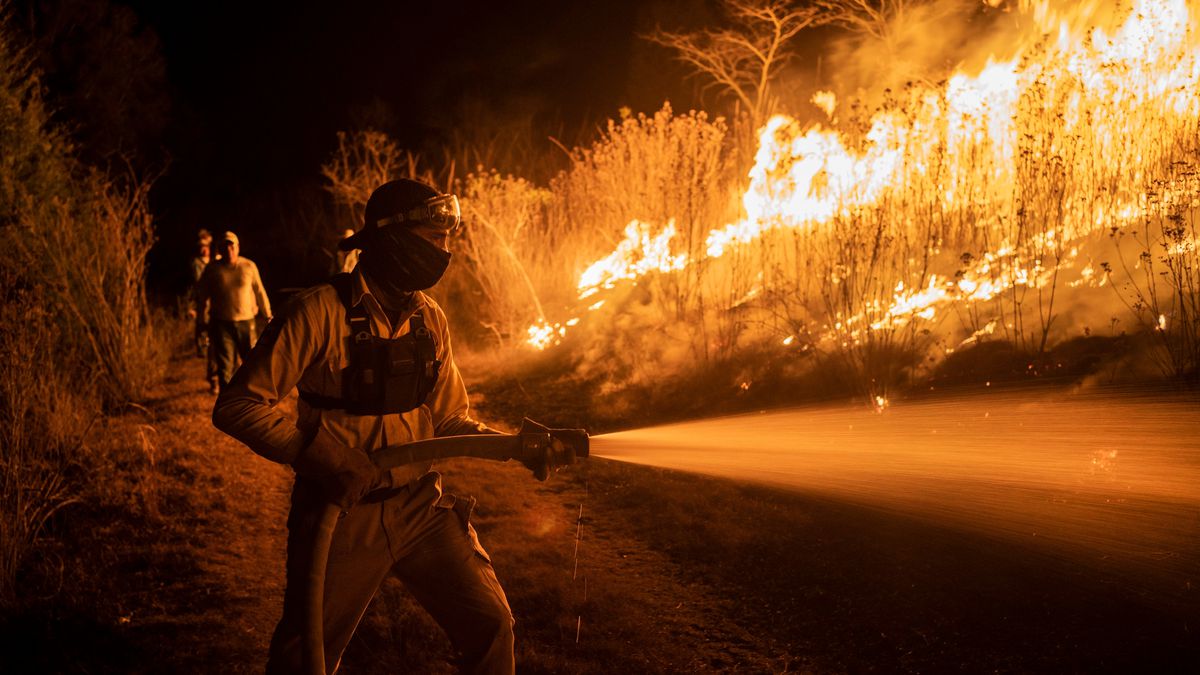
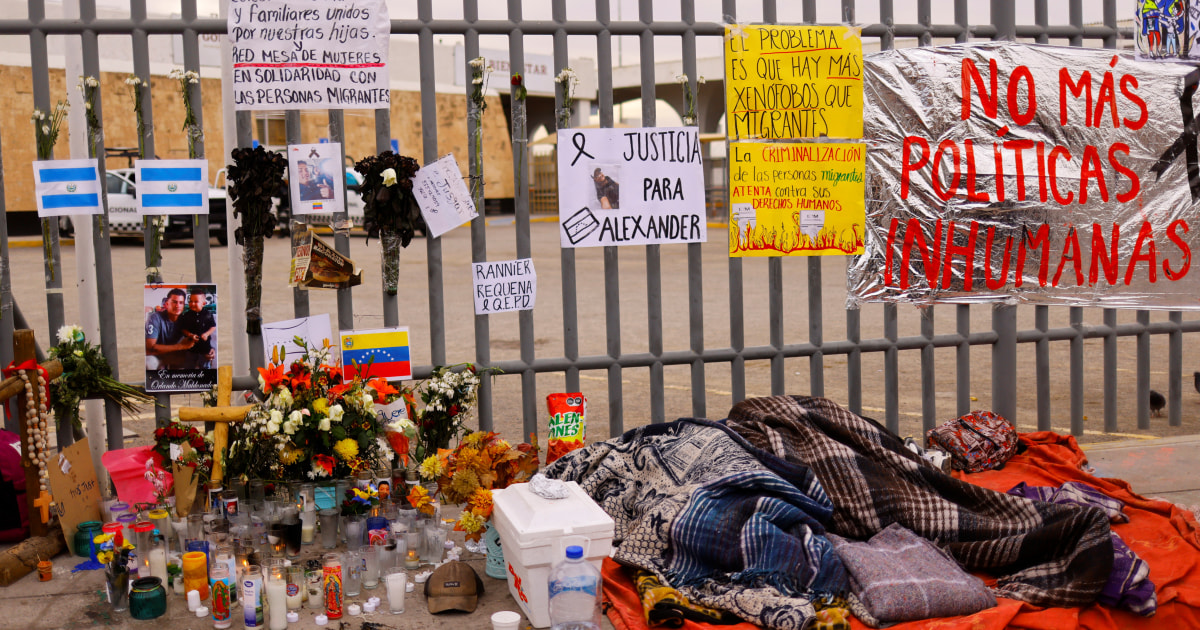
/cloudfront-eu-central-1.images.arcpublishing.com/prisa/TSUEZ7K7S5HNDE7GY53532ZZ7A.jpg)


/cloudfront-eu-central-1.images.arcpublishing.com/prisa/KMEYMJKESBAZBE4MRBAM4TGHIQ.jpg)


